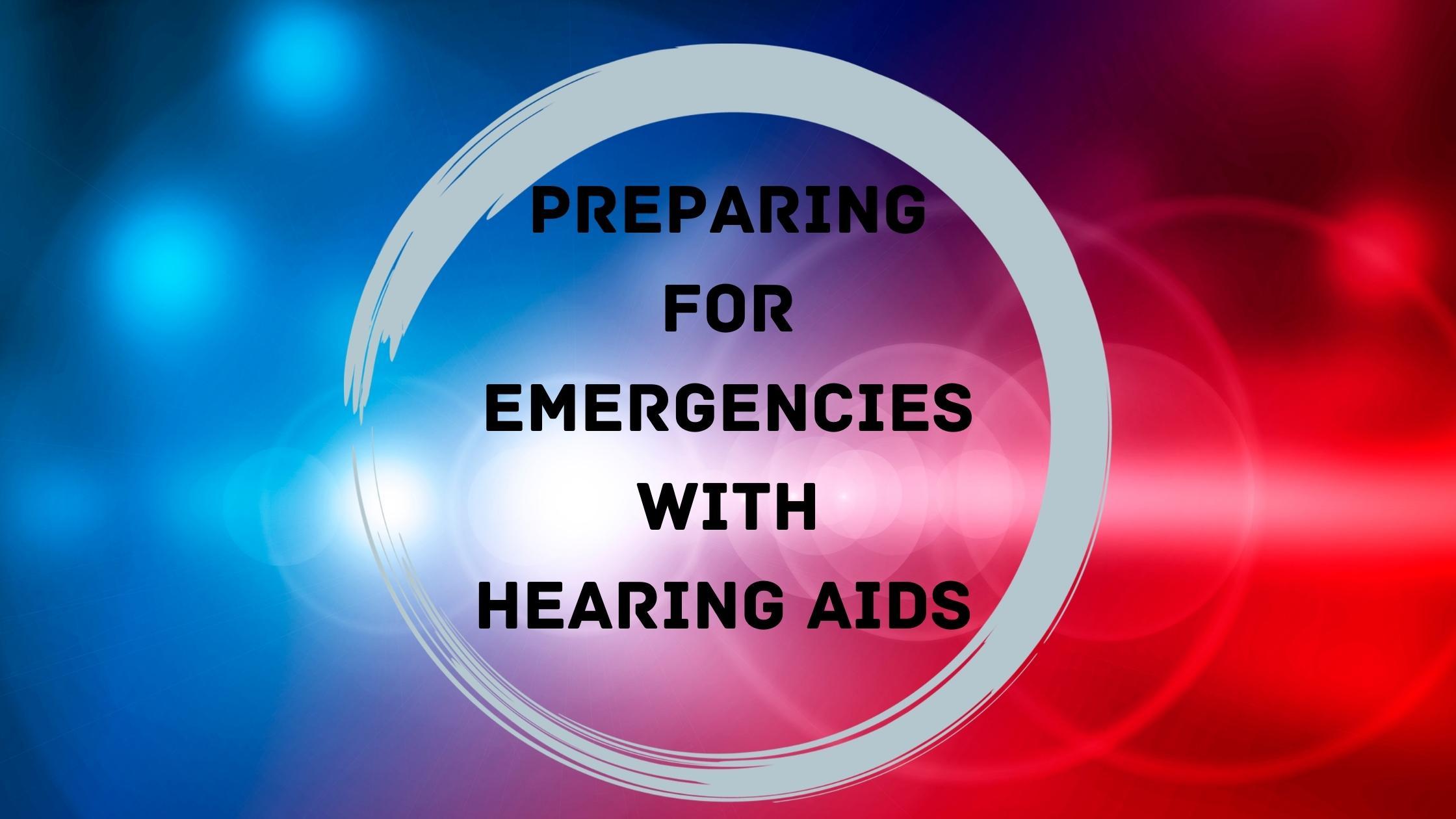
- A Guide to Different Hearing Aid Styles - May 6, 2025
- What is the Lifespan of Hearing Aid Batteries? - April 27, 2025
- Understanding the Different Types of Assistive Listening Technology - April 15, 2025
It’s easy to take our hearing aids for granted once we have gotten into the habit of using them. But will you be prepared when you are in an emergency? We can’t predict when a disaster or calamitous event will occur, but we can get ready. Here are a few suggestions to get your emergency kit fully stocked for unforeseen emergencies when you have hearing loss.
Pack an emergency bag
A well-stocked emergency backpack contains the essentials in general. These are sometimes referred to as a ‘Go Bag,’ because they are designed to be grabbed quickly when you need to go. You can go beyond a simple bag if you live in a region where a crisis is more likely to force you to hole down at home while you wait for normalcy to return. Many people keep an extra Go Bag in their vehicle to ensure that they are prepared for extreme weather when they are away from home.
What should go in your ‘go bag.’
Pack what you would need to survive for a few days if you were sequestered from the world. These days, dehydrated camping options and energy bars are pleasant and minimal options to pack in your emergency kit. They take up very little space but are calorically heavy so that a little goes a long way.
Water is a much bulkier component, especially as the Federal Emergency Management Agency (FEMA) recommends a gallon a person per day for hydration and sanitation. If you want to be prepared, acquire a water filtration system available at most outdoor stores. These might come in handy if untreated water isn’t available.
Other things you might need
Make sure that you have a suitable first aid kit, batteries, flashlights, and local maps. A backup charge or two for a cell phone would be an excellent idea. Take an inventory of your daily medications and have a week’s worth of dosage tucked away in your emergency kit. Expand this to include over-the-counter medications like pain relievers and antibiotic ointments.
Copy your most important documents
The recent forest fire season was rife with emergency evacuations. In situations like that, people are looking beyond survival and into a future in which they’ve lost their homes.
To prepare for an eventuality such as that, make sure you have essential documents digitized or copied and stashed in your bag. This might include pictures of every room of your house, birth certificates, the deed(s) to your home(s), insurance information, and possibly even copies of cherished family photos. In this cell phone era, you might also want to copy down virtual telephone numbers onto a piece of paper to be accessed if you’re without battery power.
Pack the right stuff
It might be tempting to overpack when anticipating an unknown. But, over-preparedness might hinder you if you are forced to leave in a hurry. The purpose of a Go Bag is to make leaving uncomplicated and straightforward. If it’s too stressful to imagine preparing only a tiny bag and leaving things at that, perhaps your anxiety would be soothed if you also had a small cache of necessities stored in your home.
Prepare your hearing aids too
Of course, don’t forget to address your future hearing aid needs in an emergency. Hearing aid wearers should always pack away a few extra days of batteries in case of an emergency. A water-resistant hearing aid container is a must-have, giving you a reliable way to store your hearing aids in uncertain circumstances.
Having desiccant on hand is a great way to prepare for additional moisture. Depending on the emergency, a higher rate of rain, snow, or humidity might be present, which is a great way to dry your devices quickly.
Because you might run out of battery life despite your best intentions, keep a pen and paper in your emergency kit. This can be of service if communication is necessary without hearing aids, particularly if you have severe or profound hearing loss.
Visit us for a hearing test!
For optimal hearing, contact us today. We provide comprehensive hearing exams and hearing aid fittings, as well as hearing aid maintenance and repair.
